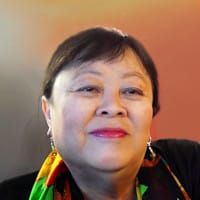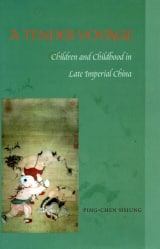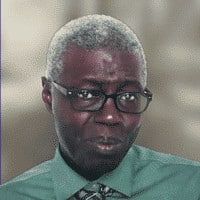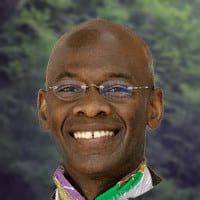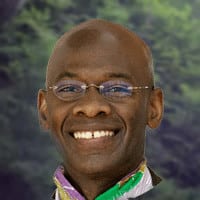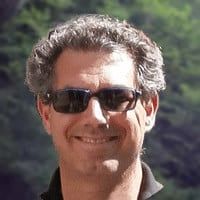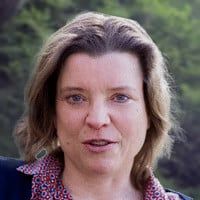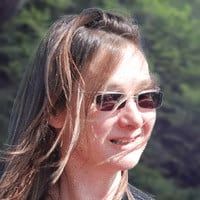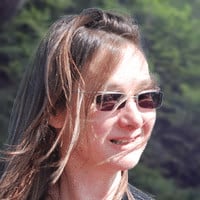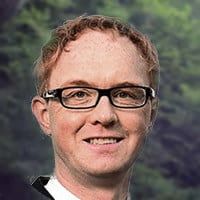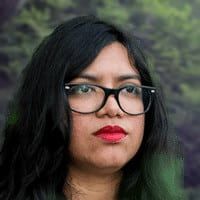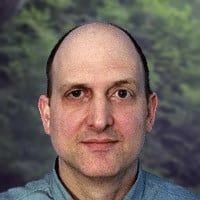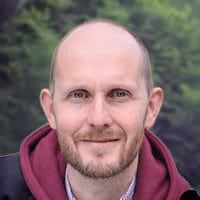Hsiung Ping-chen

Hsiung Ping-chen is a Professor of History at the Chinese University of Hong Kong who also carries the capacities of the Senior Advisor to the Vice-Chancellor and the Director of the Research Institute for the Humanities at the university. She served as Dean of the Faculty of Arts at The Chinese University of Hong Kong from 2009 to 2011, and Dean of the College of Liberal Arts at Taiwan Central University from 2004 to 2007. Also, Prof Hsiung has been serving as the Research Fellow at the Institute of Modern History, Academia Sinica, Taipei since 1990, and K.T. Li Chair at Central University in Taiwan since 2006. An internationally renowned scholar in her field, she has also made remarkable achievements in academic administration.
Having received her B.A. in History from Taiwan University, she furthered her studies in the US and received her M.A. and Ph.D. in History from Brown University and her S.M. in Population Studies and International Health from the School of Public Health at Harvard University. Her research interest lies in the areas of women’s and children’s health, gender and family relations, and intellectual and social history of early modern/modern China and Europe. She served as Director of the Humanities Centre at the Central University in Taiwan, and played an instrumental role in founding the interdisciplinary group ‘Ming-Ch’ing Studies’ at the Academia Sinica. Over the years, Professor Hsiung has held visiting professorships at many leading academic institutions in North America, Europe and the Asia-Pacific region, including UCLA, Cornell University, University of Michigan, Freie Universitat Berlin, and Keio University, Japan.
The Chinese University of Hong Kong
President, Asian New Humanities Net (ANHN)
(852) 3943 7134
Childhood becomes a social, spiritual and historical journey for Ping-chen Hsiung, History professor at the Chinese University of Hong Kong, who has dedicated most of her 40-year-spanning academic career to the study of infants and children in ancient China.
As the West has continually seen childhood as just the first steps taken into the richer and wider phases of life, Hsiung’s studies focus on the spiritual and social roles of the child we all were once, and how the maintenance of this role represents a key to understanding the role we take on as adults.
As well as her position as a History Professor, Hsiung’s takes the seat as the Director of the Center for Taiwan studies at the Chinese University of Hong Kong, and her broad academic experience and research on childhood and infancy in China can be found surmised in her book A Tender Voyage, where she exposes through an interdisciplinary approach the comparisons standing between how we view children in the West, and how they were seen in China hundreds of years ago, in order to extract, from a view of the past in contrast to the present, the path to a more tender future.

Nerina: Today, I am sharing with you a conversation that I had a year ago with Ping-chen Hsiung. She’s a professor of History at the Chinese University of Hong Kong, and she has done pioneering work on childhood in China. One of her favorite quotes id “To write well, express yourself like the common people, but think like a wise man”, by Aristotle.
Hsiung: I am Hsiung Ping-chen, professor of History at the Chinese University of Hong Kong. I am a trained historian, but I also have a secondary field in Public Health.
My main research topic is History of infants and young children in late imperial China, studied from interdisciplinary and comparative perspective. This is trying to answer historically how human life becomes possible, namely what happens every day now in the modern society whenever you give birth to a child. You expect this child to make it in life, but that’s not the given in pre-modern societies, so I wanted to answer that question, and given that Chinese documentation tends to be rich and available in many, many different angles from different areas, I started this study from Chinese sources, and then compared to information as we know it from England, Sweden, Japan, India, and colonial America. Then, I try to study it from historical texts left by pediatricians, by art historians, by objects and things, so it required an interdisciplinary angle.
Nerina: How did you get interested in this topic?
Hsiung: I was very curious, when I was maybe 7 or 8, about how we as very young children – preschool children – have a sense of identity, therefore when I was I teenager and saw the cover of The Second Sex – only the cover at the bookstore -, I thought maybe the second sex was about children and childhood, as a second identity. I opened it up and discovered it was about women and was a bit disappointed, although I am a woman, and thought therefore children should be called the third sex, that is: children as an independent domain in terms of their sense of self, their interests, the games they play, their everyday sentiments. If you see their behavior or other things that you now know, people acknowledge that age as a factor, and the phases of life – human life, however it is understood in different societies, at different times -, actually form a kind of a different existential sentiment.
How I got interested? I was just very curious. I went to college and picked History as a major at the National Taiwan University in 1971. I assumed that this was an often studied subject, and therefore you could just take a course called Childhood in World History, but I looked it up as a freshman and never found it. I graduated with a History major, then I went out to History graduate school at Brown University in the United States and got a degree in History and started teaching. By the end of the early 80’s, I discovered that, really, I had nothing studied. I was very surprised and couldn’t sleep with the idea of not knowing.
I knew by then that there was material to answer that question, so I decided I should just answer my own question so that whenever *4:30, unintelligible*
Nerina: What can we learn from this topic?
Hsiung: We discovered the details of how infants where brought from their first 24 hours, first week, first month, first year, and why they celebrated when they got to live, and that’s in the technical aspect. But also in that we see how people treasure life, because death, or not living, is a constant reality, and so I wrote my book that’s published in English – I published three monographs in Chinese and one in English on the subject. Published in 2005 by Stanford Press, it’s called A Tender Voyage, which is a rendition of a Chinese Buddhist term called Tz’u-hung, meaning that Indian Buddhism assumed that life is an endless suffering and so people would have to get out of this vicious cycle, but Chinese Buddhists, when they saw Indian Buddhism, they thought that the way to get out of this challenging situation is through compassion and mutual help, so that is called Tz’u-hung, a tender voyage where people could help each other to get through this very difficult journey called life.
Nerina: I wanted to know more about this book and there are different reviews about it. This is by Pei-yi Wu and you can read:
“Since Phillip Ariees groundbreaking and provocative book L’Enfant et la vie famillialle sou l’ancien régime was published in 1960, the West has been inundated with books on the history of children and childhood.”
Hsiung: The French book was actually translated into English and other languages starting in the 70’s and 80’s; I started my study at roughly that same period. That book made a very bold and startling, but also challenging, assumption, in Western Europe, or France, primarily, that childhood may be a modern invention. It has since been studied and responded by European historians, and turned out not to be the case, but still, that was a good start in terms of the discovery of childhood studies.
Nerina: The book consists of three parts; Part One is about the physical conditions, and this contains the most original and important findings: In contrast to Europe, specialized medicine for children appeared considerably earlier in China. The beginning of practicing pediatrics started at least since the second half of the ninth century.
Part number two is about social life, and here professor Hsiung gathered information from more than eight hundred chronological biographies. One fully developed topic is the bond between mother and son; we can read the depth and duration of this bond had few parallels in other societies and greatly mitigated the effects of patriarchy.
In part number three, that is about, for example, girlhood, I feel that there is also an interest in aspect, when she says; to further confront the superficial impression that gender prejudice could have worked only to the advantage of boys, it is useful to look at the privilege a young girl might have had in emotional warmth from family elders. Most families, if made to disclose, indicated their favorite child to be a daughter. Interesting perspective and, I feel, really interesting book.
What was childhood about?
Hsiung: You know, when people now speak of children or childhood or infants, because of the modern experience, since the nineteenth century originated in Europe but now it’s everywhere, people tend to think of human existence as defined by the biophysical existence, therefore they’re thinking about ‘infant’ and ‘child’ in a logical sense. That is, the earlier phase of a person’s life and of someone who is very small and needs tenderness; but if you look at the Chinese documents, it started off as understanding ‘infant’ and ‘child, the concept in three ways.
There’s the basic fundamental ways, which Chinese pediatricians share with everybody else, that have to look after the illness of a four month old or a two year old, which had a different physiological condition as opposed to sixteen year old adults. But then comes a second understanding, which is what we called a ‘social child’, that is a role, a status. Chinese people, because they would pay respect to their ancestors, so in Chinese New Year, including people who were in their sixties or seventies, would assume their role as the offspring of a genealogy; even the Emperor, the head of their empire, called himself Son of Heaven, which means that he is a junior, and that’s a basic humility and also it’s a generational concept that assumes that there’s people before you and there’s people after you. So, that’s the second definition.
The third definition, actually, is an existential and ethical understanding of infancy and childhood. That’s the understanding that, eventually, everybody would go back to become an infant; it’s something that’s cultivated, and if you look at, say, Charlie Brown or some painting, they’re people would always be a child, always a five year old, always a three year old. Because at that time people didn’t have a notion of time as a lineal progression, so people think ‘Ok, you could stay forever young’ or that you do your exercise and cultivate, and you would become a child again.
I think those three different ways of understanding the beginnings of life and the existential state and the social role, at least allow people to have multiple choices, and it’s a good cultural diversity, I would say. That is something that Chinese, or the habitants of continental East Asia, happen to start up with. I don’t like to say that Chinese civilization always held secrets to everything else, or that’s it’s older, because I think the relations between different cultures and civilizations is not a competition about who’s winning, who’s coming better, or who’s wiser, or smarter, or better; I just think that different people living in different circumstances in different places happen to have different notions, ideas, and practices, and this is one thing that I discovered in my studies and that I would like to share.
Nerina: What is the most important lesson that you have learned?
Hsiung: When I talk about my studies, people always say ‘Oh, how can you document stories of six month infants from hundreds of years ago?’, and I say ‘Of course you could, as long as you give it your hardest attention and time’, because I think, as historians, we could also document silence, and then to interpret the empty space. The people whose lives have vanished will be just like the open space in the painting; there’s always the void. What is not there helps us understand and interpret what’s there. We have to be able, as historians, to document the missing lives and the empty spaces and the silences better.
Nerina: How can we use our past, our different pasts, to create our common future?
Hsiung: I think that historical relations have stored a database of circumstances. How they worked and enjoyed and endured these circumstances, so it would be a loss if it’s like a forest; if you only decided to preserve the most useful plant for current cosederation, the you would lose a lot, because in the forest, in the water, you want all forms of life to be able to carry on. So I certainly would like, when I talk to people in social sciences, to work with more contemporary data, or to think about future problems, I would say that this is also useful information. They’re humans too, and then it would be a shame if we decided to drop that and assume that we could still have enough information and inspiration and all kinds of stories to carry on for the future.
I also hope that humanities and art would not have such a confrontational relation with science and people who have other interests, because I see, in all kinds of real circumstances, unique people with different expertise, different experience, different interests, with common work together. No singular subject or discipline could complete a service or a task without the help of other people.
Nerina: If you could travel through time, is there a time you’d like to view? Is there a person you would ask something in the past?
Hsiung: If I were to be able to travel back in time. I know there are times and places where people really mingled and boundaries did not matter as much. For instance, in the Asian border, between the sixth and ninth century; I would like to be there.
I have just been to *foreign city name, can’t hear it right, 16:45*, because I know that there are Indian eye doctors who would fix people’s eyes, there are Persian musicians who would perform their show, and all kinds of traders, and people who spoke all kinds of languages, so that would be the kind of place that would satisfy my curiosity.
Nerina: What kind of question would you have for them?
Hsiung: Oh, no. It would just me going to the market everyday: I love to look at things, I like to go to different markets and to see what life has to offer. I don’t have any particular informative questions to ask them, but I think it would be a to to see how life flourishes in places and times when boundaries mattered less and when people mingled more easily.
Nerina: Do you have a dream?
Hsiung: I have lots and lots of dreams. I actually have a lot of real dreams every day; I dream easily, and even when I doze off for a few minutes I can have a dream, and sometimes, I can’t tell the difference between the cream and real life. I tend to think that the difference between dreams and real life is that the dreams that you have are so real, that they could become real life in the next step.
Nerina: What is your next book?
Hsiung: My next book is going to be documenting the life of a provincial intellectual in seventeenth century China, who somehow, because of his of sort of failed life, dreamed of something big, and then people said three hundred years later that he’s very modern. This is the book I’m publishing.
In terms of projects, because I have studied infants and children for thirty years, now I’m looking at the other end, meaning aging understood and observed cross-culturally.
Nerina: You research on childhood, and you are going to research the end of life. What is life about?
Hsiung: What is life about? You know, as I said, it shouldn’t only be about physical existence. It includes life socially, culturally, but it should also define affinity. I also teach History of Family, and I say ‘Your closest ones may not be the blood kin. It could be the people who rub shoulders with you when you have a flat tire in the winter, when people stop and help you. That’s your closest kin’.
What is life? It depends, but I would say life is what you decide to make of it.
Nerina: Thank you so much, Hsiung.
Thank you so much for watching, thank you so much for listening. Keep wondering, and see you soon again. Bye and ciao.
Hsiung Ping-chen is a Professor of History at the Chinese University of Hong Kong who also carries the capacities of the Senior Advisor to the Vice-Chancellor and the Director of the Research Institute for the Humanities at the university. She served as Dean of the Faculty of Arts at The Chinese University of Hong Kong from 2009 to 2011, and Dean of the College of Liberal Arts at Taiwan Central University from 2004 to 2007. Also, Prof Hsiung has been serving as the Research Fellow at the Institute of Modern History, Academia Sinica, Taipei since 1990, and K.T. Li Chair at Central University in Taiwan since 2006. An internationally renowned scholar in her field, she has also made remarkable achievements in academic administration.
Having received her B.A. in History from Taiwan University, she furthered her studies in the US and received her M.A. and Ph.D. in History from Brown University and her S.M. in Population Studies and International Health from the School of Public Health at Harvard University. Her research interest lies in the areas of women’s and children’s health, gender and family relations, and intellectual and social history of early modern/modern China and Europe. She served as Director of the Humanities Centre at the Central University in Taiwan, and played an instrumental role in founding the interdisciplinary group ‘Ming-Ch’ing Studies’ at the Academia Sinica. Over the years, Professor Hsiung has held visiting professorships at many leading academic institutions in North America, Europe and the Asia-Pacific region, including UCLA, Cornell University, University of Michigan, Freie Universitat Berlin, and Keio University, Japan.
The Chinese University of Hong Kong
President, Asian New Humanities Net (ANHN)
(852) 3943 7134
